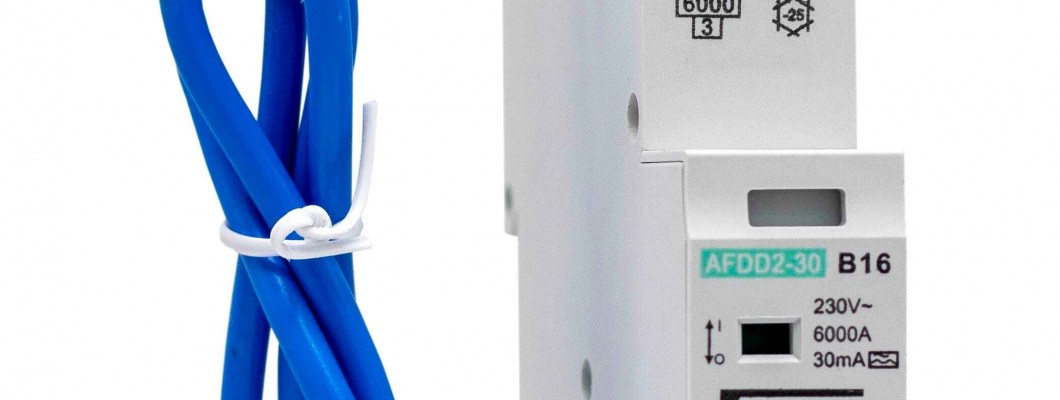
Arc Fault Detection Devices (AFDD)
Arcs are visible plasma discharges caused by electrical
current passing through a normally nonconductive medium. This is caused when
the electrical current ionizes gases in the air. Temperatures created in this
instance are sufficient to start a fire and cause extensive damage.
What Causes Arcs?
An arc is created when the electrical current jumps a gap
between two conductive materials. The most common causes of arcs include worn
contacts in electrical equipment, damage to insulation, break in a cable and
loose connections.
What are Arc Fault Detection Devices?
AFDDs are protective devices installed in consumer units to
provide protection from arc faults. They use microprocessor technology to
analyse the waveform of the electricity being used to detect any unusual
signatures which would signify an arc on the circuit. They are far more
sensitive to arcs than conventional circuit protective devices.
In terms of physical size, Protek’s AFDDs are a single
module device which, like a standard circuit-breaker, will fit a standard Protek
consumer unit.
Do I need to install Arc Fault Detection Devices?
In the current edition of the IET Wiring Regulations, BS
7671:2018, it is a recommendation to install AFDDs but the customer can choose
to omit them. However, this decision should be based considering any relevant
risk and safety factors against the cost of installation.
AFDDs are worth consideration if there is an increased risk
of fire, such as:
Premises with sleeping accommodation, for example, houses,
hotels, and hostels.
Locations with a risk of fire due to the nature of processed
or stored materials, for example, stores of combustible materials.
Locations with combustible constructional materials, for
example, wooden buildings.
Fire propagating structures, for example, thatched buildings
and timber-framed buildings.
Locations with endangering of irreplaceable goods, for
example, museums, listed buildings and items with sentimental value.
It may also be worth speaking to your insurance company, to
see if they would payout in the event of a fire if AFDDs were not installed as
recommended in BS 7671:2018.
Do I need to install an AFDD on every circuit?
In some cases, it may be appropriate to protect particular
final circuits and not others but if the risk is due to fire propagating
structures, for example, a timber-framed building, the whole installation
should be protected.
Protek's Range of AFDD
2 Pole 1 module 30mA Trip 'B' curve 6kA Type A AFDD for use with 35mm DIN rail. Compatible with all Protek enclosures and consumer units.
- Voltage - 230V
- Current type - 'A'
- 2 Pole 1 Module 30mA 'B' Curve 6kA
- Arc fault protection
- Short circuit protection
- Earth leakage protection
- Max cable IN 25mm / OUT 10mm
- Screw terminal clamp
- Positive trap indication
- Reset button
